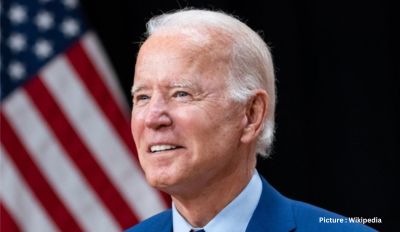In a historic move, almost 200 nations gathered in Dubai on Wednesday and issued an unprecedented call for a global transition away from fossil fuels, addressing the primary contributor to climate change after years of avoidance. Following 13 days of intensive discussions and sleepless nights in a nation built on oil wealth, the Emirati president of the UN-led COP28 summit, Sultan Al Jaber, signaled consensus by banging a gavel.
“You did step up, you showed flexibility, you put common interest ahead of self-interest,” remarked COP28 president Sultan Al Jaber, acknowledging the global effort. Jaber’s role as the head of the United Arab Emirates’ national oil company had raised suspicions among environmentalists. Describing the agreement as a catalyst for “transformational change” on climate, Jaber highlighted the UAE’s role in restoring faith in multilateralism and showcasing the power of global unity.
EU climate chief Wopke Hoekstra characterized the agreement as “long, long overdue,” emphasizing that nearly three decades of climate meetings were necessary to “arrive at the beginning of the end of fossil fuels.” Despite the need for more robust action, Jaber skillfully adjusted the text to gain the support of countries ranging from small islands fearing extinction due to rising sea levels to major oil exporter Saudi Arabia, which championed petroleum exports.
The revised agreement calls for a “transition away from fossil fuels in energy systems, in a just, orderly and equitable manner,” toughening language from an earlier draft criticized by environmentalists. It advocates for increased action “in this critical decade” and renews the commitment to achieving no net greenhouse gas emissions by 2050, aiming to limit global warming to 1.5 degrees Celsius above pre-industrial levels.
The negotiator from the Marshall Islands, expressing concern about an earlier draft being a “death warrant” for his nation, emphasized the urgency of decisive action. Although the small islands did not block the Dubai deal, a representative from Samoa criticized the language as insufficient, calling for a more significant leap in global actions. Brazil, set to lead climate talks in 2025 in the Amazon, stressed the importance of wealthy nations delivering on their commitment to assist the worst-hit developing nations.
US climate envoy John Kerry praised the agreement as a remarkable achievement in bringing together a divided world for the common good. “I think everyone has to agree this is much stronger and clearer as a call on 1.5 than we have ever heard before, and it clearly reflects what the science says,” Kerry stated. A Saudi representative expressed “gratitude” for the UAE’s efforts, deeming the outcome a “great success.”
While the agreement refrains from endorsing calls for a “phase-out” of oil, gas, and coal, which contribute to approximately three-quarters of emissions causing the planetary crisis, it surpasses Jaber’s initial draft. Environmentalists, although generally viewing the agreement as a positive step, caution that more significant actions are imperative.
“We are finally naming the elephant in the room. The genie is never going back into the bottle, and future COPs will only turn the screws even more on dirty energy,” remarked Mohamed Adow, director of the Power Shift Africa think tank. He acknowledged that while expectations may have been raised too high, the outcome would have been unimaginable just two years ago, especially at a COP meeting in a nation heavily dependent on petroleum.
The agreement outlines more explicit near-term goals, calling for a 43 percent reduction in greenhouse gas emissions by 2030 compared to 2019 levels in pursuit of ending net emissions by 2050. However, Jean Su of the Center for Biological Diversity cautioned that there are still “cavernous loopholes” for fossil fuels. The agreement primarily addresses fossil fuel use in energy, excluding industrial sectors such as plastics and fertilizer production.
Su expressed concern about the recognition of the role of “transitional fuels,” interpreting it as a code word for natural gas and other fossil fuels, notably in the context of energy security. While the deal supports a phase-down of “unabated” coal power, it allows for the preservation of this controversial energy source if carbon capture technology is employed—a technology contested by many environmentalists as unproven.









